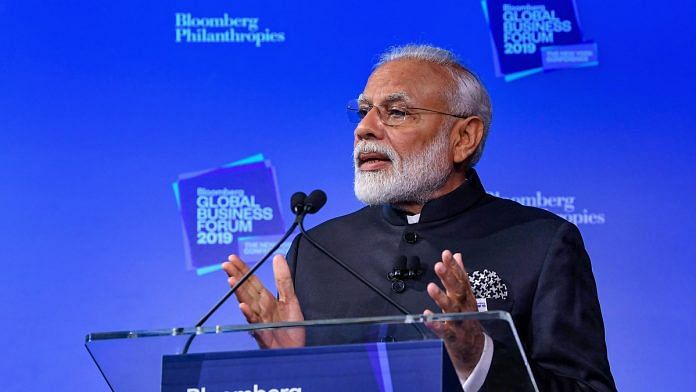New Delhi/Mumbai: Indian Prime Minister Narendra Modi tempered hopes that the third-largest emitter of carbon dioxide will move quickly to reduce the use of coal, in part blaming the country’s exclusion from a global uranium suppliers group.
“Because India is not a member of the Nuclear Suppliers Group, we don’t have assured supply of the fuel,” he said at the Bloomberg Global Business Forum in New York on Wednesday. “If we get a solution to this, we can create a new model for the world.”
China has kept India out of the 48-member Nuclear Suppliers Group, which controls the export of nuclear materials. The leader of the world’s second most-populous country declined to commit to a reduction in coal usage, which both he and his predecessors have said is essential to ensure electricity to millions of its citizens.
“India has the world’s third-largest coal reserves,” Modi said, when asked by Michael R. Bloomberg, founder of Bloomberg LP, if Modi expects to reduce coal burning in India. “In a poor country like India, we can’t ignore that fact.”
Also read: Why Modi govt’s push for electric vehicles alone won’t solve India’s air pollution crisis
Runaway Train
Coal helps produce about 72% of the country’s electricity, which the power ministry’s draft plan seeks to reduce to 50% by 2030. Modi said that the country needs to use cleaner methods of mining and consuming the fuel.
Describing India’s commitment to mitigating climate change, Modi said he aims to achieve 450 gigawatts of renewable power capacity in the “near future” and is ahead of schedule in implementing a more immediate goal of 175 gigawatts capacity from solar, wind and biomass.
However, India has separately also indicated the country’s climate change response plans are conditional on higher financial support from developed nations. According to the New Climate Institute think tank, India would have to play a major role — along with China and the U.S. — in keeping global warming below the Paris agreement ceiling of 2 degrees Celsius. The three countries combined produce over 50% of the global carbon dioxide emissions, but are also the largest renewable energy markets.
The NSG was created in response to India’s 1974 atomic bomb test that challenged the credibility of laws written to prohibit nuclear proliferation. While nations are free to discuss bilateral details with uranium suppliers even if they are out of the NSG, India has struggled to add nuclear generation capacity because of a range of challenges, including developers’ concerns over a liability law and local protests.
Michael Bloomberg is the majority owner of Bloomberg LP, the parent company of Bloomberg News.
Also read: NTPC to set up India’s biggest solar park in Gujarat




As a lay person, one thought the clean, one time waiver allowed India to buy fuel and other nuclear material for its civilian power programme, which is completely under international safeguards. Membership of the NSG is more in the nature of a prestige issue, for which we have expended a lot of diplomatic capital. Exclusion from the group would impair our ability to prevent future changes of rules, to our detriment. However, India has too many friends in the 48 member NSG for that to be a major concern. The economics of nuclear power, coupled with safety issues after Fukushima, make this yesterday’s energy source.